In the ever-evolving landscape of legal practice, the ability to conduct efficient and comprehensive legal research is paramount. The introduction of Case Rover, Zimbabwe’s first AI-powered legal research tool, marks a significant milestone in this arena. As legal professionals, we are often faced with the daunting task of sifting through vast amounts of case law, statutes, and legal precedents to construct compelling arguments and provide sound advice to our clients. Case Rover is designed to streamline this process, offering an unprecedented level of accuracy, speed, and insight.
A Case Study: The Legality of Dual Citizenship in Zimbabwe
To demonstrate the capabilities of Case Rover, let us consider a pressing legal question: Is dual citizenship legally recognized in Zimbabwe, and under what circumstances can a Zimbabwean citizen acquire or lose their citizenship?
Dual citizenship has been a contentious issue in Zimbabwe, with debates surrounding its recognition and the conditions under which it is permitted. This question is particularly relevant in cases involving individuals born abroad to Zimbabwean parents, or those who have acquired foreign citizenship through marriage or naturalization.
Using Case Rover for Legal Research
When approaching this legal question, a thorough investigation is required to understand the regulatory provisions, statutory laws, and judicial interpretations that govern citizenship in Zimbabwe. With Case Rover, this research process is greatly simplified.
I am not a legal professional but it is my general understanding that for every research you have to start with the research questions. Luckily, Case Rover has an Assistant Mode which will allow the researcher to ask any question that requires general knowledge. Let’s ask Case Rover to generate some research questions for us. I will login to Case Rover using this link (caserover) and I will be taking screenshots.
By default, Case Rover will send me to Assistant mode which is okay. But first let me create a workspace called Zimbabwe Citizenship which is specifically for this research. Case Rover allows you to keep your research separate through workspaces so that you can always look for your past research. Workspaces allow you to create individual chats with Case Rover, say a chat for a specific client or a chat for a specific case you are working on.
Let’s go and ask Case Rover:
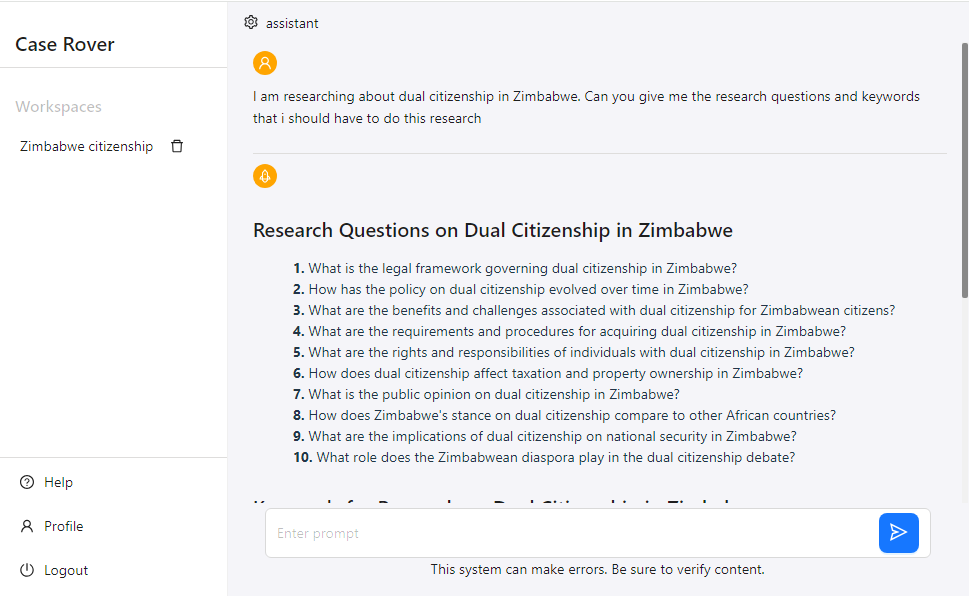
The responses are rather long but i will be taking screenshots of the necessary sections. As you can see, Case Rover in Assistant mode has managed to come up with some questions that can be essential to our research. Obviously i am not going to be asking all those questions so that this blog post can be short. Let’s take question 1 and ask it in Statutes mode. At the top left corner of the chat, you will see a menu button, go and hover over that button if you are on desktop or click it if you are using a mobile device. A popup menu will appear and you will see all the modes available. Under ‘Other’ you will see Statutes. Click on Statutes and you will have switched from Assistant mode to Statutes mode, now you have access to all the statutes currently in force in Zimbabwe. Let’s continue with our chat:
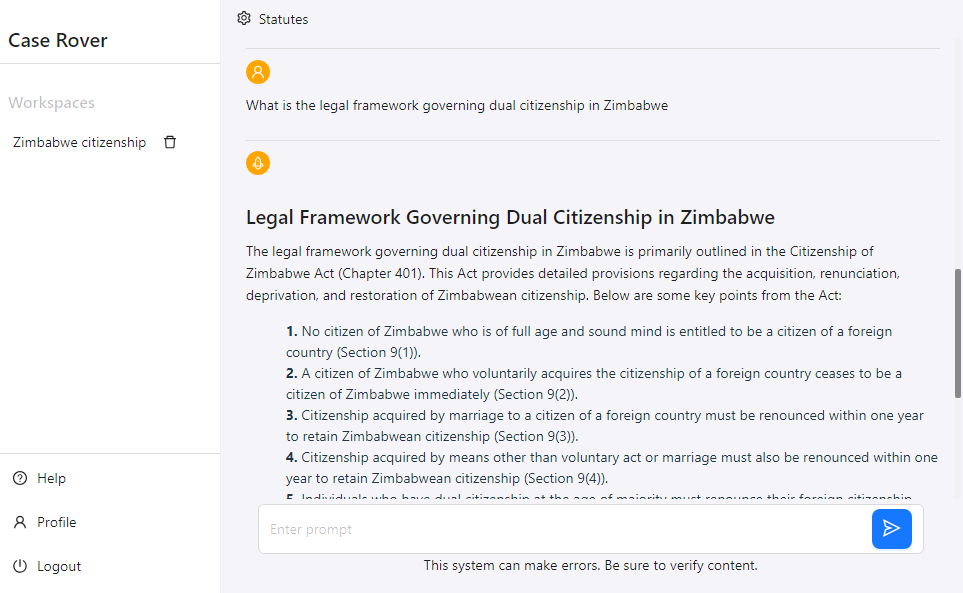
Turns out it is legal to have dual citizenship if you are a citizen and you are of full age and sound mind. To verify this information and as a lawyer, scroll down to the bottom of the chat where you will see a list of the document used by Case Rover’s AI to generate this response. Click on one of the links and the official document will open up and you can be able to check the sections and subsections mentioned by Case Rover to see if they are true. Here is the screen when one of the links to documents is clicked:
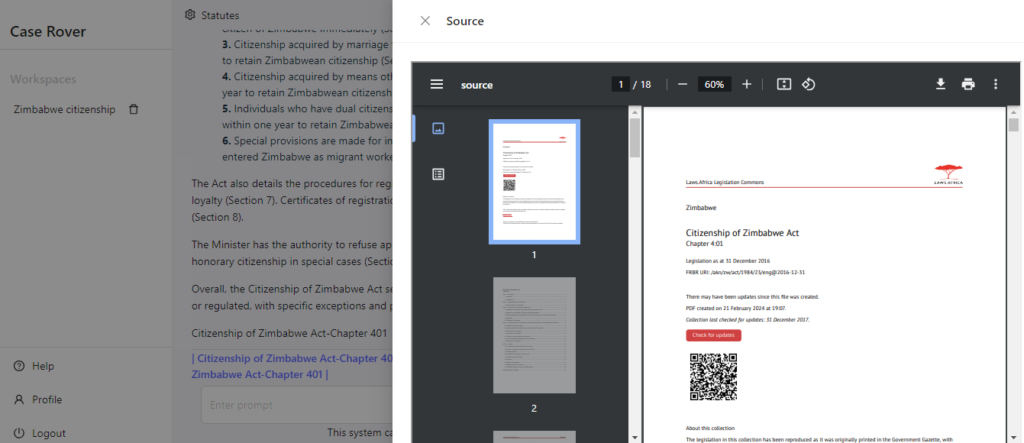
Let’s go to section 9 which was referenced by Case Rover to see if it exist and if it is inline with what Case Rover told us. Here is a screenshot of that section
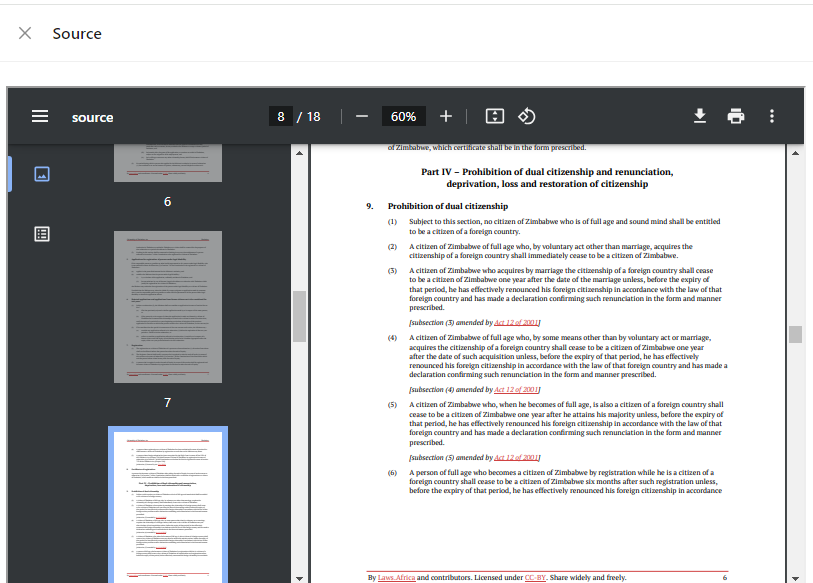
Waalah, It turns out its true. Let’s proceed to look for regulations that discuss the matter.
Regulations on dual citizenship
Switch the mode from Statutes to Regulations using the process we described above. Let’s ask the questions:
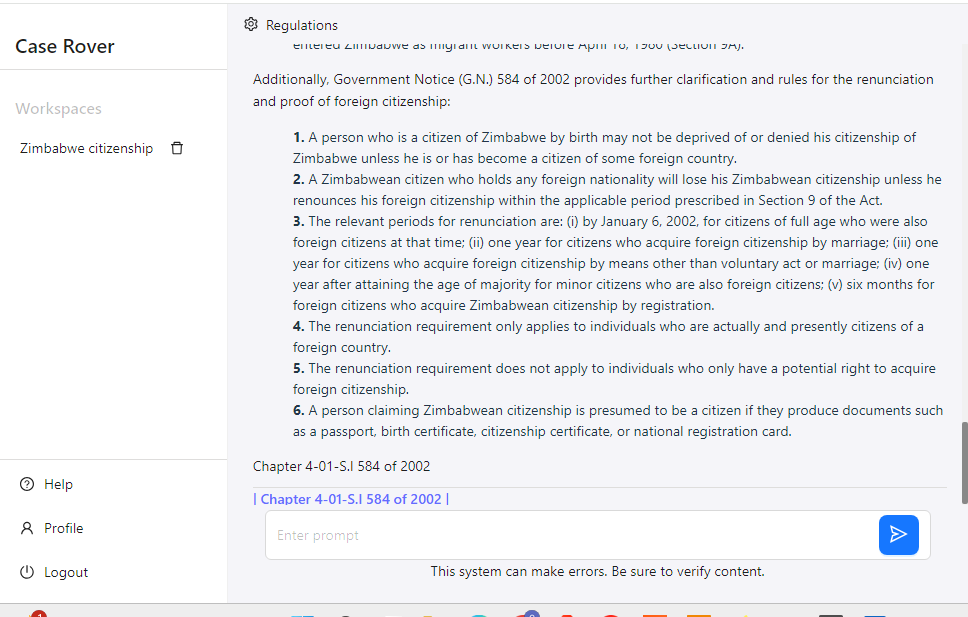
The system said a lot but i just screenshotted the most relevant section where it introduces me to a government notice which was issued under Statutory Instrument (S.I) 584 of 2002. You can click the link for this document so that you can read it, let me show you the screenshot for the S.I:
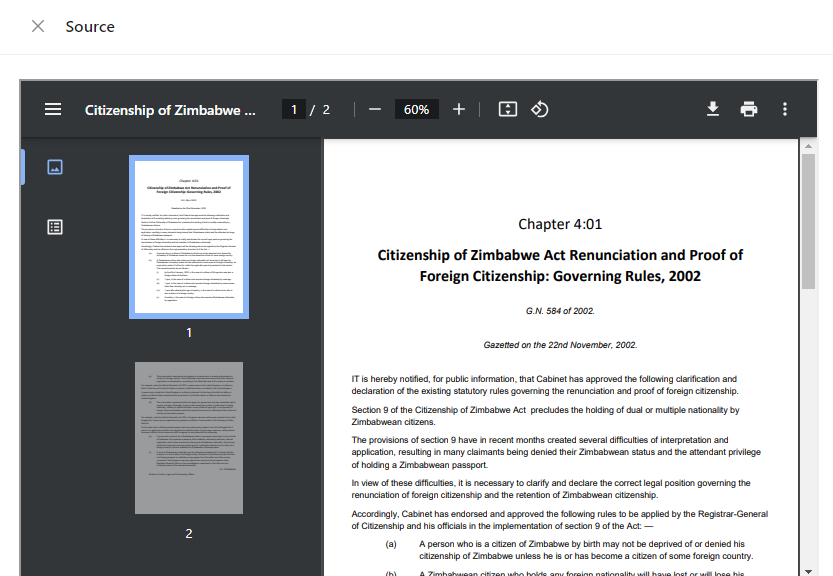
I have met a lot of lawyers who have told me that it is hard to find regulations. With Case Rover you can clearly see how easy it is to find a regulation and use it as part of your legal research. Let’s switch the mode to case law and try to find precedents.
Case Law
I have switched the mode to Case Law, now let me ask a question and see how Case Rover performs:
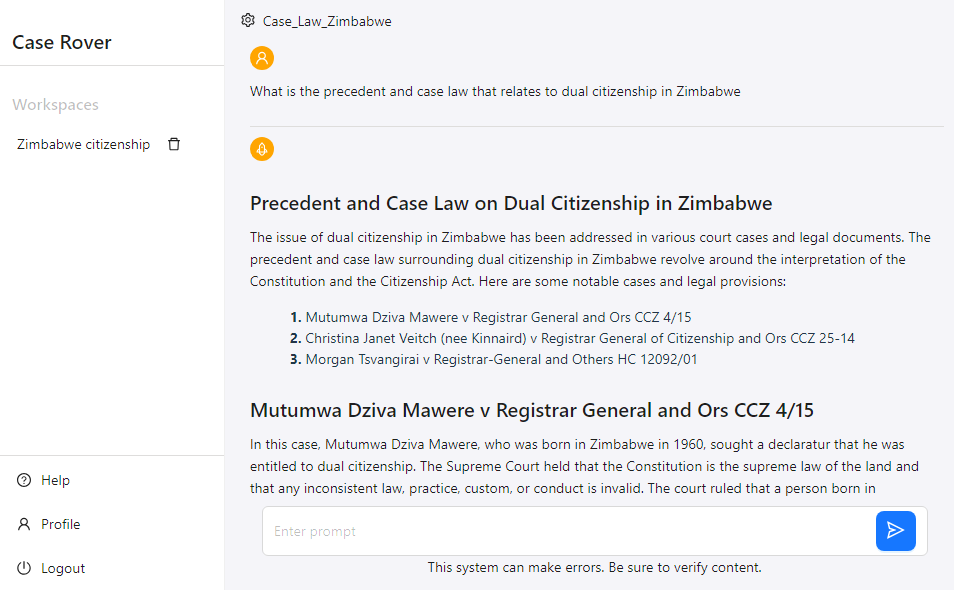
You can clearly that Case Rover is a must have. I have realized that the constitution of Zimbabwe actually does allow for dual citizenship even though it is against the Citizenship Act and the High Court as upheld those provisions. Take a look:
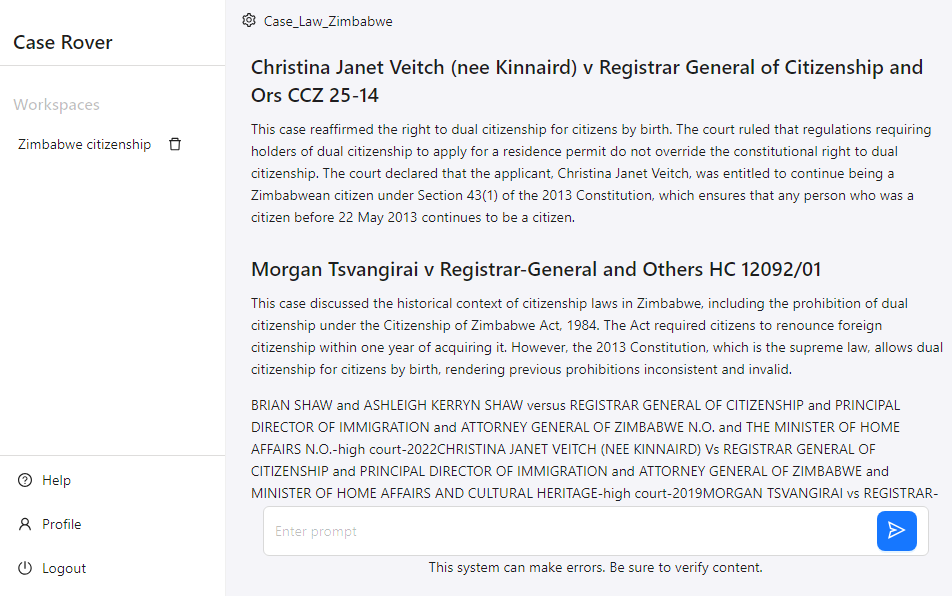
I can safely say dual citizenship is allowed for. Obviously this was not a thorough legal research since i am not a lawyer but I’m sure you can appreciate how useful the tool is. Please do not take this blog post as legal advice.
Conclusion
With Case Rover, legal professionals in Zimbabwe now have a powerful ally in their research endeavors. The tool not only saves valuable time but also ensures that research is comprehensive and up-to-date, drawing from the most recent and relevant legal sources. Whether you are dealing with complex constitutional questions, statutory interpretation, or case law analysis, Case Rover is designed to enhance your practice and empower you to deliver the highest quality legal service to your clients.
As the first AI-powered legal research tool in Zimbabwe, Case Rover represents a revolutionary step forward for the legal profession, making it an indispensable resource for any lawyer serious about staying ahead in their field.
CONTACT US

No responses yet